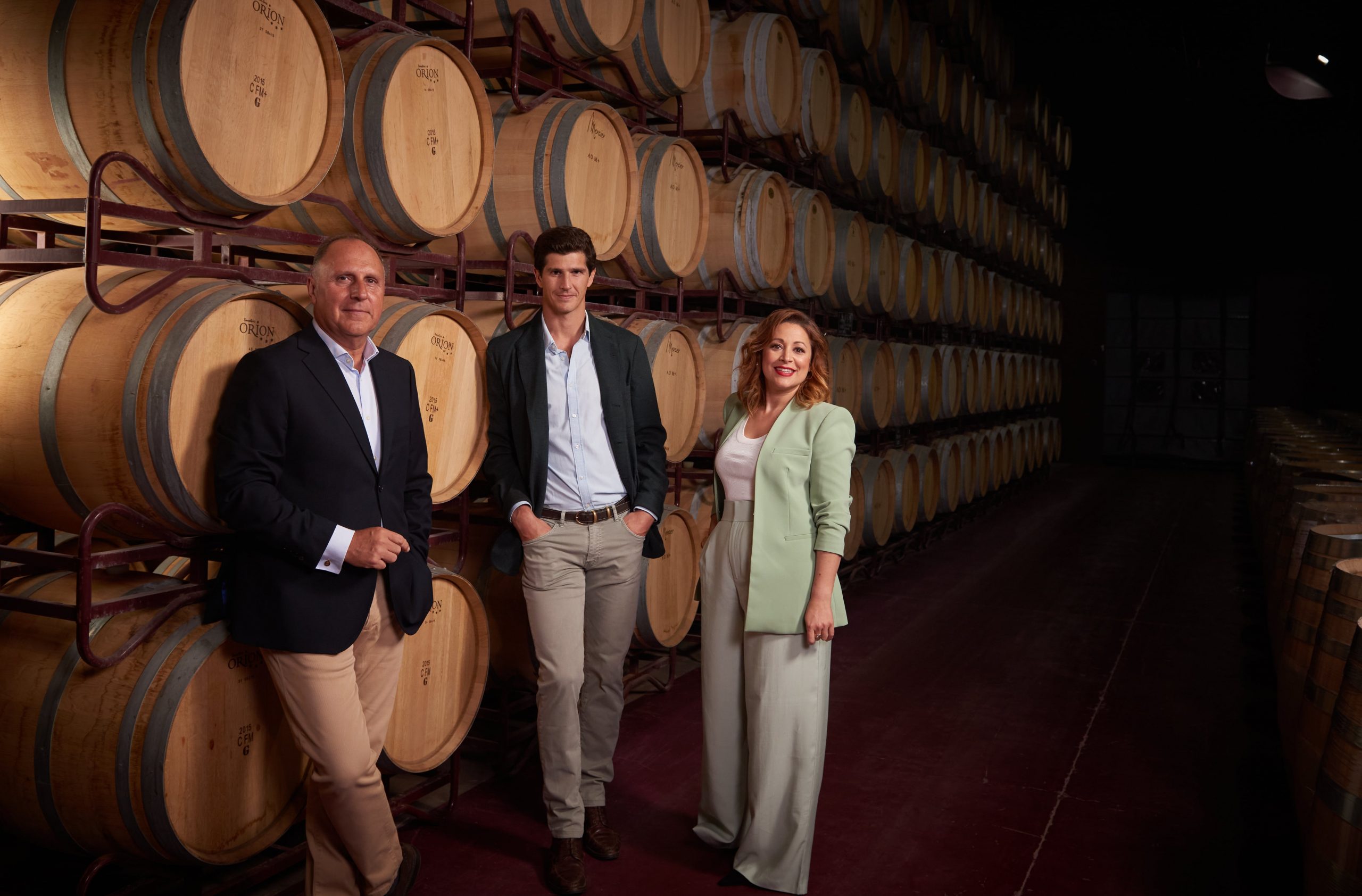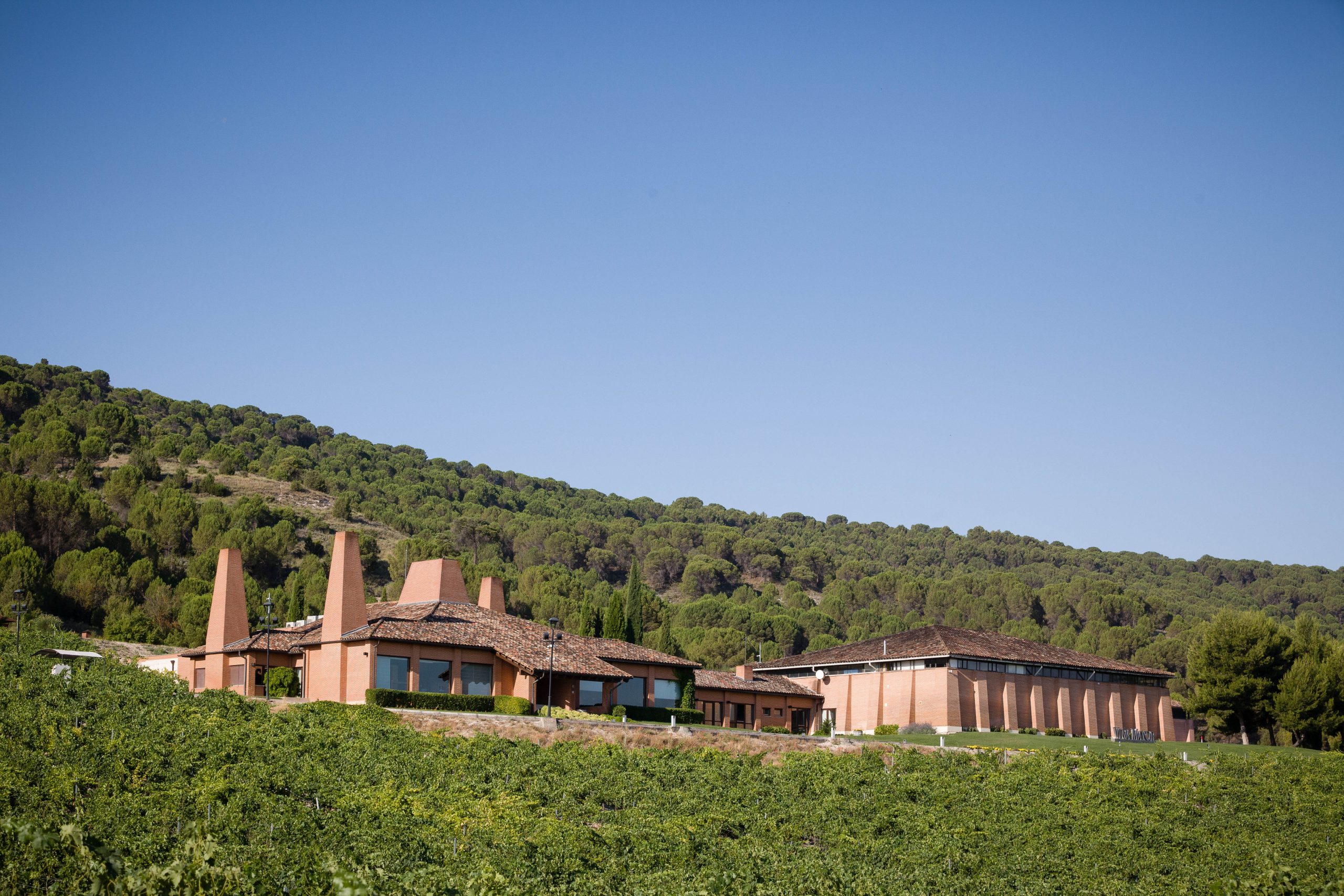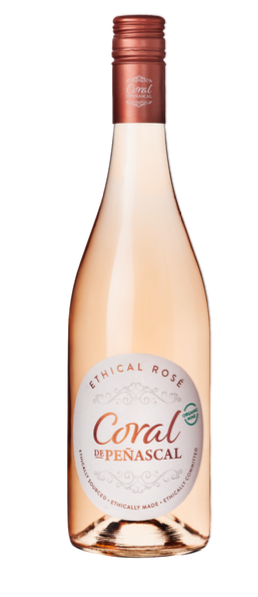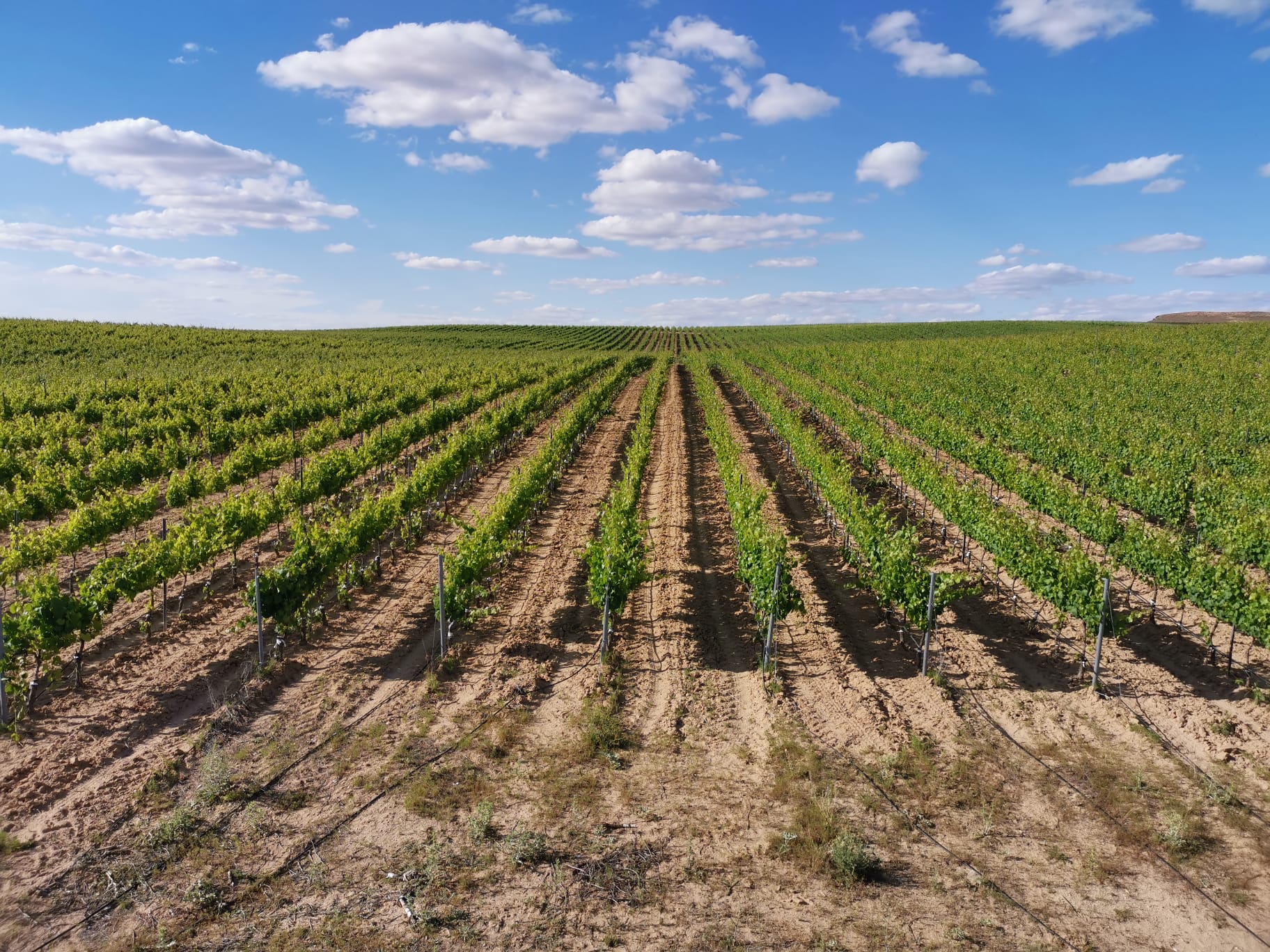This website uses cookies so that we can provide you with the best user experience possible. Cookie information is stored in your browser and performs functions such as recognising you when you return to our website and helping our team to understand which sections of the website you find most interesting and useful.
Entrecanales Domecq e Hijos gains carbon neutral certification
With Gonzalo Entrecanales at the helm, Spanish winery Entrecanales Domecq e Hijos is chasing its sustainability goals with new carbon neutral status awarded by international certifier DNV. db learns more.

“We’re investing in our vineyard, we’re investing in our production methods, we’re investing in communication,” says Gonzalo Entrecanales, who took on the role of CEO at Entrecanales Domecq e Hijos in January 2021 following a career in investment banking.
Entrecanales, who turns 30 this year, is now heading up his family’s wine group, formerly known as Grupo Bodegas Palacio 1894, following a rebrand in June 2021.
A push towards sustainability is driving company investments.
Entrecanales Domecq e Hijos has achieved carbon neutral status from independent certifier DNV, thanks to the reduction and neutralisation of its emissions of greenhouse gases. The certification has been obtained through the implementation of a programme of neutralisation, that includes the reporting, reduction and compensation of emissions, with the commitment to ongoing reductions every year.
The winery has been working towards this goal for some time now, calculating carbon footprint and offsetting emissions since 2017.

Although a step in the right direction, investing in sustainability does come with sacrifices.
“The balance that each one of us has to find, and how much you’re willing to sacrifice, is a very personal thing,” Entrecanales says.
That sacrifice means, among other things, finding a balance between ethics and economics.
“With anything that has to do with sustainability, you have to keep financial and economic sustainability also in mind,” he says. “Yes you can be very aggressive and a purist in your sustainability measures, but you have to be mindful of the reality we live in, and in some cases moderate the actions you take so as not to risk the viability or profitability of a company.”
One way in which the company is striking this balance is in appealing to younger, more climate-conscious consumers.
Entrecanales Domecq e Hijos launched Coral Ethical Wine in May 2021. The wine, part of the range at Bodegas Peñascal in Valladolid, has been designed with lighter glass packaging and an easily recycled label.
“Everyone in the industry is talking about bringing younger generations closer to the wine industry,” Entrecanales says.
“What is the younger consumer asking for? Something more responsible, something more sustainable, but also something light to drink. Of course it has to be top quality, but something where you don’t have to spend 20 minutes talking about the wine before you can drink it.”
Coral was the solution to this issue. With an RRP of £9.99, the rosé’s accessible price point is also key to attracting a younger demographic.

Not all consumers are ready for the sustainability drive, however, which comes as a challenge to wineries and brands looking to make a difference.
“In many cases, the consumer doesn’t ask for it because they don’t have the option to access those alternatives. So wineries, or any producers of consumer goods, have to make an effort to provide that optionality,” Entrecanales says.
The weight of the bottle, for him, is key to breaking down consumer habits. “I think it will take time for consumers to be willing to make the sacrifice of the image a larger heavier bottle portrays versus the sustainability benefits of having a lightweight bottle,” he adds.
But for Entrecanales, a sustainable focus is the “direction of travel” for the wine market.
In light of this, the young CEO holds sustainable certification as a top priority.
“We’re going down the route of trying to certify as many things as we can do with institutions that are internationally recognised,” he explains.
For Entrecanales, certification is a way of holding wineries to account, eliminating the threat of greenwashing. As he puts it, “it’s very easy to say I don’t want to get certified because it’s too bureaucratic; it’s too expensive; I don’t believe in the way they certify it. But I think that gives way for people to greenwash or say things that the don’t actually do.”
The family-owned company was founded by Gonzalo’s grandfather 35 years ago, but outside the world of wine, renewable energy remains a key facet of his family legacy.
The family’s main operation remains an infrastructure, construction and renewable energy business called Acciona, which, until recently, was a shareholder in the wine business.
As such, the path towards sustainability has always been a clear one. The company is working to implement biodiversity measures in all vineyards, with a 100% conversion to organic grape growing underway.

“The intention is to keep abreast of how climate might change our viticulture,” the CEO says.
Entrecanales Domecq e Hijos is also bolstering its team with the addition of a new winemaker. José Tejedor has taken up the baton from Roberto Rodríguez as the technical director at Bodegas Cosme Palacio, under the leadership of company winemaking director Almudena Alberca MW.
Tejedor’s previous experience includes stints in Chile, Spain and France.
“He’s had a lot of experience with different grape varieties, different agricultural techniques, different winemaking techniques, and therefore we thought he was a very good complement to Almudena’s team,” Entrecanales notes.
Entrecanales is confident that the new hire is a step in the right direction. Looking to the future, he is passionate about maintaining the sustainable progress of the company in the long run.
He says: “For as long as I live, I’ll be very focused on what we are doing in sustainability. This is a family company that I’ve recently got involved with full time, and therefore I’m looking at a 20, 30, 50 year time frame.”

